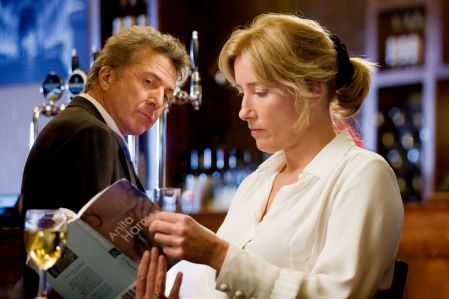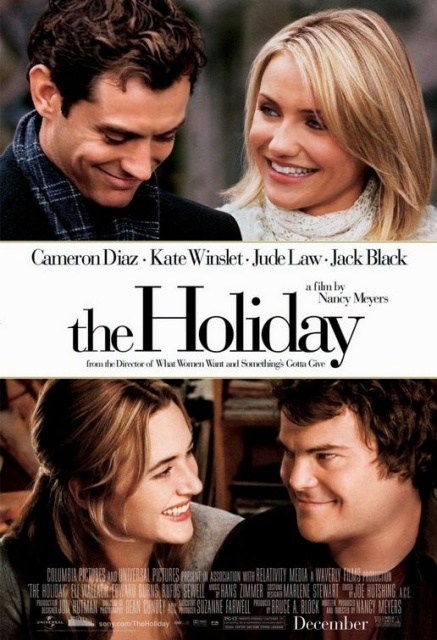Roberto Benigni sobre «El tigre y la nieve»…
«La película es el resultado de mi deseo de hacerla. No había ninguna idea tras ello; sólo el sentido del amor. Los protagonistas sienten el anhelo del amor; la mayor, más subversiva y revolucionaria fuerza en el mundo. Es el resultado de mi deseo de hacer una película tan pura como la nieve, tan feroz como el tigre.»

Aaahh *_*
7 enero 2010
http://www.goear.com/listen/582f724/seasons-of-love-musical-rent
Five hundred twenty-five thousand six hunderd minutes
Five hundred twenty-five thousand moments so dear
Five hundred twenty-five thousand six hundred minutes
How do you measure, measure a year?
In daylights, in sunsets
In midnights, in cups of coffee
In inches, in miles, in laughter, in strife
In five hundred twenty-five thousand six houndred minutes
How do you measure, a year in the life?
How about love?
How about love?
How about love?
Measure in love
Seasons of love
Seasons of love
Five hundred twenty-five thousand six hundred minutes
Five hundred twenty-five thousand journeys to plan
Five hundred twenty-five thousand six hundred minutes
How do you measure the life of a woman or a man?
In truths that she learned
Or in times that he cried
In bridges he burned
Or the way that she died
It´s time now, to sing out
Thougt the story never ends
Let´s celebrate
Remember a year in the life of friends
Remember the love
(Oh, you got to, you got to remember the love)
Remember the love
(You know that life is a gift from up´above)
Remember the love
(Share love, give love, spread love)
Measure in love
(Measure, neasure your life in love)
Seasons of love
Seasons of love
(Measure your life, measure your life in love)
Según Wikipedia..
Director de cine o cinematográfico es la persona que dirige la filmación de una película, dando instrucciones a los actores, decidiendo la puesta de cámara, supervisando el decorado y el vestuario, y todas las demás funciones necesarias para llevar a buen término el rodaje.
Previamente habrá intervenido en numerosas labores, principalmente la realización del guión técnico (encuadre, plano, movimientos de cámara, objetivo y angulación), como la selección de los actores o casting y demás profesionales, los escenarios naturales en los que se rodará la película, los decorados, o la redacción final del guión.
El termino realizador se lo considera sinónimo de director. Pero en la televisión, el realizador es por lo general quien se encarga de la faz técnica de grabación, mientras que el director puede ser el responsable de los aspectos realizativos o el director general del programa o el que esta sentado frente a la mesa de control «mezcladora» de imagen y sonido. Hay también un director de piso y uno de iluminación, de fotografía, etc. El realizador en el cine interpreta el guión, dirige los actores, determina planos y ángulos de cámara, luz, movimientos de cámara y duración de la toma y participa en el montaje.
-.
This is what I choose to be. 16 de Noviembre de 2009 (incluso rima, mirá)
Además, sumergíendome por internet, encontré esta página española, que explica de una manera muy encantadora, qué es ser un director de fotografía: http://www.aecdirfot.org/biblio/dirfoto1.htm
There’s a time when a man needs to fight, and a time when he needs to accept that his destiny is lost… the ship has sailed and only a fool would continue. Truth is… I’ve always been a fool.
Harvey: Kate, I’m so sorry I wasn’t there.
Kate: Harvey, I like you, I really do. And I had a lovely time – it was great. But, you know, I don’t really do fountains at noon. I live in Willesden. And you live in..
Harvey: White Plains.
Kate: Exactly. And we’re not teenagers, so – you know, monday morning and life kicks in, all that jobs and family and brown envelopes with bills in. It was a lovely day and I won’t forget it, but it’s not exactly real life…
Harvey: It is. It can be.
Kate: No, Harvey, it’s not.
Harvey: Kate, I want this. I want you.
Kate: But it’s not just about you, is it? You don’t know anything about me. Look at me. It’s pathetic. I expected you not to show, for God’s sake. I think I even wanted you not to be there, it’s easier that way.
You – you just dive in wherever deep end..whoosh. But, I’m not your bloody swimming pool, Harvey. And I am not going to do it, I’m not going to do it because it will hurt. Not right now, maybe, but soon – there will be a «It’s not quite working» or a «I need some space» or whatever it is and it’ll end and it’ll hurt and I won’t do it, I won’t and…I…Oh fuck, I don’t want to cry. I don’t want this…
I think it’s actually easier for me to be disappointed. I think I’m actually angry at you for trying to take that away.
Harvey: Should I take that as a hopeful sign? If you just give me a little wider smile..
Kate: Oh, shut up, Harvey. So how’s this going to work, Mr Shine?
Harvey: I have absolutely no idea…But it will. I promise you that.
Kate: Shall we walk?
Harvey: Yes.
[After a short while Kate stops, puts her hand on Harvey’s shoulder and takes off her shoes.]
Kate: That’s better.
Harvey: I think you’re my kinda girl.





La tigre e la neve
24 marzo 2009
The Holiday
13 enero 2009
Iris: I understand feeling as small and as insignificant as humanly possible. And how it can actually ache in places you didn’t know you had inside you. And it doesn’t matter how many new haircuts you get, or gyms you join, or how many glasses of chardonnay you drink with your girlfriends… you still go to bed every night going over every detail and wonder what you did wrong or how you could have misunderstood. And how in the hell for that brief moment you could think that you were that happy. And sometimes you can even convince yourself that he’ll see the light and show up at your door.
—
Iris: I’ve found almost everything ever written about love to be true. Shakespeare said «Journeys end in lovers meeting.» What an extraordinary thought. Personally, I have not experienced anything remotely close to that, but I am more than willing to believe Shakespeare had. I suppose I think about love more than anyone really should. I am constantly amazed by its sheer power to alter and define our lives. It was Shakespeare who also said «love is blind». Now that is something I know to be true. For some quite inexplicably, love fades; for others love is simply lost. But then of course love can also be found, even if just for the night. And then, there’s another kind of love: the cruelest kind. The one that almost kills its victims. Its called unrequited love. Of that I am an expert. Most love stories are about people who fall in love with each other. But what about the rest of us? What about our stories, those of us who fall in love alone? We are the victims of the one sided affair. We are the cursed of the loved ones. We are the unloved ones, the walking wounded. The handicapped without the advantage of a great parking space! Yes, you are looking at one such individual. And I have willingly loved that man for over three miserable years! The absolute worst years of my life! The worst Christmas’, the worst Birthday’s, New Years Eve’s brought in by tears and valium. These years that I have been in love have been the darkest days of my life. All because I’ve been cursed by being in love with a man who does not and will not love me back. Oh god, just the sight of him! Heart pounding! Throat thickening! Absolutely can’t swallow! All the usual symptoms.
—
Graham: I have another scenario for you – I’m in love with you. I apologize for the blunt delivery, but as problematic as this fact may be, I’m in love… with YOU. I’m not feeling this because you’re leaving, and not because it feels good to feel this way… which, by the way, it does, or did before you went off like that. I can’t figure out the mathematics of this, I just know I love you. I can’t believe how many times I’m saying it! And I never thought I’d feel this way again, so that’s pretty phenomenal. And I realize that I come as a package deal: 3 for the price of 1. I know my package, perhaps in the light of day, isn’t all that wonderful, but I finally know what I want and that, in itself, is a miracle. And what I want is YOU.
—
Graham: Well, I cry all the time.
Amanda: You do not.
Graham: Yeah I do. More than any woman you’ve ever met.
Amanda: You don’t have to be this nice.
Graham: It happens to be the truth.
Amanda: Really?
Graham: A good book, a great film, a birthday card, I weep.
Amanda: Shut up.
Graham: I’m a major weeper.
—
Iris: Miles. You really are an incredibly decent man.
Miles: I know. It’s always been my problem.
—
Iris: I’m looking for corny in my life.




Eternal Sunshine of the Spotless Mind
15 noviembre 2008
[Joel sticks the cassette tape in his stereo and listens his voice on it:]
‘The only way Clem thinks she can get people to like her…is to fuck ‘em…or at least dangle the possibility of getting fucked in front of’em. And she’s so desperate and insecure…that she’ll, sooner or later, go around fucking everybody.’
Clementine: I don’t do that.
Joel: I wouldn’t think that about you.
Clementine: Because I don’t.
Joel: I know.
Clementine: Because it really hurts me that you said that because I don’t do that. I’m so sorry. I’m sorry about all this. I’m gonna… go. I’m a little confused. I don’t really think I can be here. Um… bye.
Joel: Bye.
Clementine: It was nice meeting you and all.
[The tape continues while they are talking:]
‘I thought I knew her so well. But I don’t know her at all. What a loss to spend that much time with someone,only to finding out that she’s a stranger.’
[Clementine leaves Joel’s apartment]
Joel: Wait.
Clementine: What?
Joel: I don’t know. Just wait. Just wait.
Clementine: What do you want, Joel?
Joel: I don’t know. I want you to wait for… just a while.
Clementine: (silence) Okay. (silence) I’m not a concept, Joel. I’m just a fucked-up girl who’s looking for my own peace of mind. I’m not perfect.
Joel: I can’t see anything that I don’t like about you.
Clementine: Right now you can’t. But you will. But you will. You know, you will think of things, and I’ll get bored with you and feel trapped…because that’s what happens with me.
Joel(smiling): Okay.
Clementine: Okay..Okay(smiling). Okay!(laughing).
‘It’s DIFFICULT to get a man to understand something when his salary depends upon his NOT UNDERSTANDING IT’
11 noviembre 2008

Partes de Monsieur Verdoux
24 octubre 2008
Verdoux: Oh, there’s a bee! got it!, haha! is that silly?
Monsieur Verdoux
23 octubre 2008
Chaplin resume a la perfección el argumento de la película, incluyendo una reflexión sobre el personaje que él mismo interpreta: Landrú Verdoux, un insignificante empleado de banco que, habiendo perdido su empleo durante la depresión, idea un plan para casarse con solteronas viejas y asesinarlas luego a fin de quedarse con su dinero. Su esposa legítima es una paralítica, que vive en el campo con su hijo pequeño, pero que desconoce los manejos criminales de su marido. Después de haber asesinado a una de sus víctimas, regresa a su casa como haría un marido burgués al final de un día de mucho trabajo. Es una mezcla paradójica de virtud y vicio: un hombre que, cuando está podando sus rosales, evita pisar una oruga, mientras al fondo del jardín está incinerando en un horno los trozos de una de sus víctimas. El argumento está lleno de humor diabólico, una amarga sátira y una violenta crítica social.
La recepción del film de Chaplin, como fue habitual en sus últimos trabajos más complejos y personales, fue poco calurosa. Recordemos el texto de Jean Renoir sobre Monsieur Verdoux, donde establece una comparación entre Chaplin y Moliére. En una primera mitad de carrera, ambos optaban por trabajar sobre la base de los gustos actuales del público: El humor, la fábula simple como base de la historia, los conflictos entre policías y vagabundos, la infancia como única esperanza, como se ve en ‘El pibe’; son los elementos comunes a los primeros films de Chaplin. Sin embargo, ya entonces incluía en el relato reflexiones que van más allá de la simplicidad de contenido de otras películas de corte parecido. Incluso su propia vida, sus experiencias de niño, la relación con sus padres, eran objeto de reflexión para el autor. Si esto era así entonces, es lógico que Chaplin, con la madurez de la edad, una vez sus ideas sobre el mundo habían cambiado, y una serie de duras pruebas que la vida le había impuesto eran superadas, hiciera un cine distinto. Chaplin se valió entonces para hablar cara a cara con el público que tanto lo adoraba por sus grandes comedias: ‘La quimera del oro’, ‘Tiempos modernos’, etc. Un día, Chaplin escribe Monsieur Verdoux. Abandona las formas externas a las que tenía acostumbrado a su público, y se produce una gran ola de indignación: lo arrastran por los suelos. Un cambio que se produjo de forma consciente, algo que podemos comprobar en esta última serie de películas, sobre todo en ‘Candilejas’, donde la presencia autobiográfica es tan poderosa. Sin embargo, Chaplin siguió con interés la reacción del público. Así demuestra que con este cambio no trataba en ningún caso de realizar un ejercicio de autocontemplación. Como he dicho arriba, vemos una intención de comunicación más compleja, un mayor deseo de verdad, una reflexión sobre la época; algo que no terminó de gustar al público entonces, porque su mayor deseo era ver a Charlot. De todos modos, Charlie afirmó en un momento:«Creo que Monsieur Verdoux es la película más inteligente y más brillante de las que he hecho hasta ahora.»
 La temática de Monsieur Verdoux está presente en el análisis del protagonista. El tema principal se eleva al final del film, una vez presentados los hechos a través del viaje del personaje a lo largo del país, retratando a una sociedad ciega, débil y sin esperanza. Verdoux dice: «Asesinar a una persona hace de uno un canalla, asesinar a millones un héroe. Las cantidades santifican, querida mía». Sin duda, este sentimiento no podía ser aceptado con pasividad por la sociedad norteamericana de la posguerra. «Lo que Verdoux proclama es que resulta ridículo mostrarse impresionado por la amplitud de sus atrocidades, que son una simple comedia de crímenes, en comparación con los cometidos en masa y legalizados por la guerra, que el sistema adorna con galones dorados. […] Verdoux, con toda su palabrería, realiza una seria tentativa de evaluar la calidad moral de sus crímenes.»
La temática de Monsieur Verdoux está presente en el análisis del protagonista. El tema principal se eleva al final del film, una vez presentados los hechos a través del viaje del personaje a lo largo del país, retratando a una sociedad ciega, débil y sin esperanza. Verdoux dice: «Asesinar a una persona hace de uno un canalla, asesinar a millones un héroe. Las cantidades santifican, querida mía». Sin duda, este sentimiento no podía ser aceptado con pasividad por la sociedad norteamericana de la posguerra. «Lo que Verdoux proclama es que resulta ridículo mostrarse impresionado por la amplitud de sus atrocidades, que son una simple comedia de crímenes, en comparación con los cometidos en masa y legalizados por la guerra, que el sistema adorna con galones dorados. […] Verdoux, con toda su palabrería, realiza una seria tentativa de evaluar la calidad moral de sus crímenes.»
Chaplin vivió con preocupación el progresivo alejamiento de América. Por mucho que le honre Europa, todavía se sentía profundamente herido por la manera que lo rechazó América. Da la impresión de ser un hombre que trató de ocultar una herida que jamás se curará del todo. La amarga melancolía de ‘Candilejas’ se trasladó luego a ‘Un rey en Nueva York’, generalmente mal entendido como un panfleto antiamericano. Sin embargo, para Chaplin, Norteamérica era una fantasía y una desilusión, un mundo maravilloso que puede volver a visitar, pero que nunca iba a volver a conquistar. «No soy un político. No soy un comunista. Ya lo dije en la conferencia de prensa cuando se estrenó Monsieur Verdoux: ‘He vivido en los Estados Unidos durante cuarenta años. No he comenzado todavía ninguna revolución, ni estoy planeando comenzarla, ni creo que lo haga jamás’. Eso les dije.» Es bastante lógico que Chaplin protegiera sus intereses particulares. Sin embargo, el cineasta que tenía dentro afloraba al realizar un film, donde sin duda comenzó a verter al oído de los americanos lo que más les podía irritar.
















